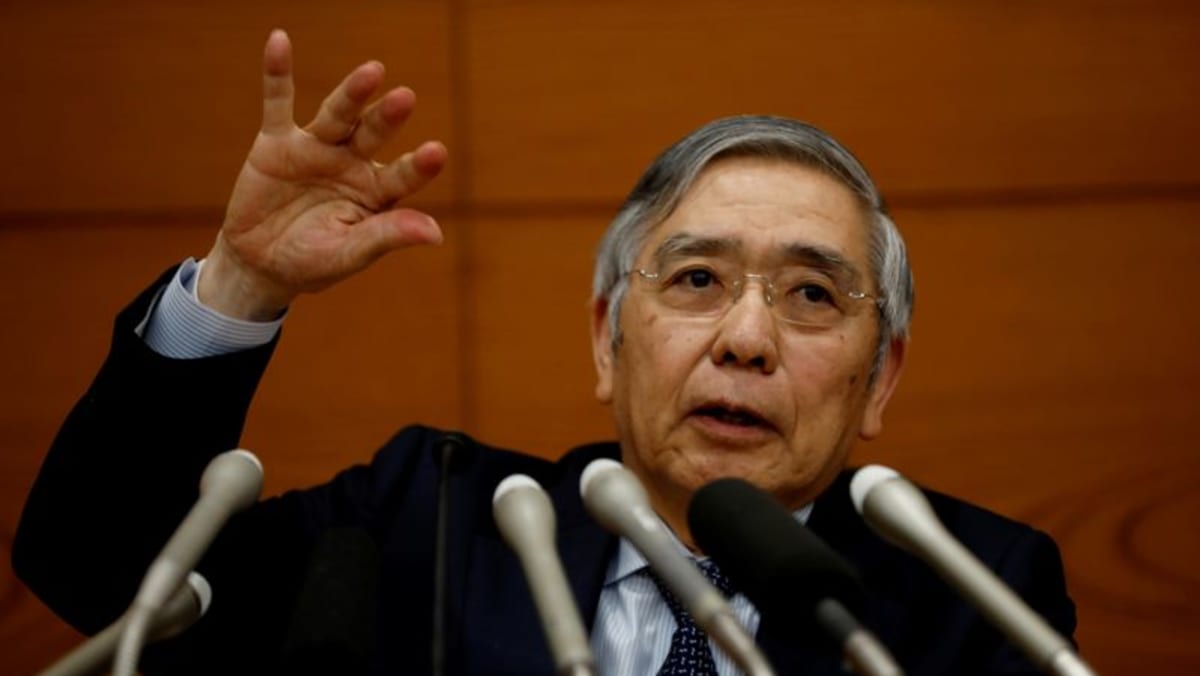Bank of Japan’s Kuroda dismisses near-term chance of exiting easy policy
TOKYO: Bank of Japan (BOJ) Governor Haruhiko Kuroda on Monday brushed aside the chance of a near-term exit from ultra-loose monetary policy but voiced hope that intensifying labour shortages will prod firms to raise wages.
Kuroda said the BOJ’s decision last week to widen the allowance band around its yield target was aimed at enhancing the effect of its ultra-easy policy, rather than a first step toward withdrawing its massive stimulus programme.
“This is definitely not a step toward an exit. The Bank will aim to achieve the price target in a sustainable and stable manner, accompanied by wage increases, by continuing with monetary easing under yield curve control,” Kuroda said in a speech delivered to a meeting of business lobby Keidanren.
He also said Japan’s average consumer inflation will likely slow below the BOJ’s 2 per cent target in the next fiscal year as the effects of soaring import costs dissipate.
But Kuroda said wage growth will likely increase gradually due to intensifying labour shortages and structural changes in Japan’s job market, which are leading to higher pay for temporary workers and a rise in the number of permanent workers.
“Labour market conditions in Japan are projected to tighten further, and firms’ price- and wage-setting behaviour is also likely to change,” Kuroda said.
“In this sense, Japan is approaching a critical juncture in breaking out of a prolonged period of low inflation and low growth,” he said.
The strength of wage growth is seen as key to how soon the BOJ could raise its yield curve control targets, which are set at -0.1 per cent for short-term interest rates and around 0 per cent for the 10-year bond yield.
For all the latest business News Click Here

